Brandon Strawder - The safety tool every roofer's toolkit needs - PODCAST TRANSCRIPT
January 12, 2024 at 12:00 p.m.Editor's note: The following is the transcript of a live interview with Brandon Strawder from The RIDGEPRO. You can read the interview below or listen to the podcast.
Intro: Welcome to Roofing Road Trips with Heidi. Explore the roofing industry through the eyes of a long-term professional within the trade. Listen for insights, interviews and exciting news in the roofing industry today.
Heidi J Ellsworth: Hello and welcome to another Roofing Road Trips from Roofer's Coffee Shop. My name is Heidi Ellsworth and we are here today to talk about something that is the top of every priority list all the time, and especially going into 2024. And that's safety. We want all of our roofing professionals to get home safe. So I am so excited today to be invite our guest or welcome our guest, Brandon Strawder with RidgePro, to talk about safety and about the tool that can make it happen for you. So Brandon, welcome to the show.
Brandon Strawder: It's certainly great to be with you, Heidi. Thank you so much.
Heidi J Ellsworth: I'm so excited. So I can't wait to dig in on what's happening overall and talking about RidgePro, but let's first start with an introduction of who you are and a little bit about RidgePro.
Brandon Strawder: That sounds great. My name is Brandon Strawder. It's nice to meet all of you. Thank you for listening. And I'm the CEO of Strawder Family Innovations, which is the parent company of RidgePro. We have been in the roofing safety business now for about nine years, but have been in construction and roofing since the early 1980s, I believe. So a long family history in the business and seen a lot of changes and a lot of exciting things happening in our industry. And it's just such a wonderful pleasure to be able to serve all of you across the country and we look forward to another year of helping keep you safe on the roof.
Heidi J Ellsworth: Yeah, I love it. Okay, so I love your story so much. So let's start with a little bit of your family history and why your family really got into creating and innovating such great safety solutions. So kind of give us a little bit of the history.
Brandon Strawder: Absolutely. So the history of the RidgePro started, I guess around 2013ish. My family, I should be more specific, my parents had a business which was going onto roofs for insurance companies during wind and hailstorms. So they would travel all over the place doing inspections for the insurance businesses and basically sending down photos of the damage. Well, my dad was, he's still a young guy, but I mean the roofing sort of wears on you a little bit over the years. And his eyes were getting a little weaker and his knees were getting a little weaker and he was doing an inspection one day and a shingle kicked out from underneath of him on a two-story home. And he started tumbling down toward the edge and fortunately caught himself before any kind of disaster happened. But he came home physically shaken and said, "It can really happen fast, you guys. Anything can happen. I getting older, I'm not really ready to retire yet. I'm not prepared for that. I need to find a way to keep working on these jobs until I'm able to retire."
So the family sort of sat down and I'm super fortunate to have a couple of brothers who are just, they're super smart. One's an engineer, mechanical engineer. And he and my dad started talking about, "Well, what if we did this or did that?" And they started to sort of create this idea for a safety hook that you could install right from the ladder. So when you get to the top of the ladder, you put it on and you may be connected to the peak of the roof before you even get off of the ladder. And they started to develop this. And I got involved with various parts of the design process and my other brother got involved and we started putting our two cents together and sure enough, we found a way to make an adjustable roof anchor for really steep slope roofs.
And dad took it out and he started using it and loved it. And other people would see him using it and say, "Where'd you get that? I've never seen that before." He said, "Well, I just made it for myself." And from there, a little bit of a market started to form, and this is sort of where I took over, which was everyone's family members who are involved in roofing, you want them to come home, you want them to succeed. So I started spreading the message that this is a device that exists. It's easy to use, it's working for us. It might work for you as well. And the rest, it's kind of history. What started off as an experiment to keep dad safe has turned into a wonderfully successful product in the safety marketplace.
Heidi J Ellsworth: Yeah, it's so unique. It's just so functional. It really works. And so let's talk about that just for a second, just so everybody has a little bit of thing. Talk about the RidgePro and exactly how it works. And I know you said you put it off in the ladder, but how's that work?
Brandon Strawder: Yes, of course. Well, we do not claim to be all end all of roofing safety. There's a lot of tools out there, there's a lot of solutions and every roof is different. Hopefully you're making good choices or working with your team to make the right choice for the right roof. What the Ridge Pro specifically is, is a residential roof anchor, which is between the pitches of six and 12 on an asphalt shingle roof. That's sort of our wheelhouse that we focused on because that at the time was the majority of the roofs that we were going on. So while you're on the ground, you simply connect your open harness to the RidgePro, set the pitch of the RidgePro to match the roof, so there's a sliding pitch grid. You simply pull a pin, slide it to 6, 7, 8, 9, 10, 11, 12, whatever you're working on, lock it in place and then attach an extension pole, which is used to push the RidgePro from the ladder up to the peak of the roof. You flip it over and it clamps onto the roof.
And since your lifeline has already been attached to the anchor, the second you step off of the ladder, you have resistance at the peak of the roof. So you can go up and down the roof and if there does happen to be an obstacle or a slip or a trip you or able to have the resistance of the peak catch you before anything bad actually happens to you. That's the general idea of the RidgePro in the nutshell.
Heidi J Ellsworth: I love it. I love it. So I'm really curious, with all that you're doing, you're working with so many different contractors, distributors, your product's everywhere. What are you kind of seeing around safety practices overall in the industry? Have you seen improvements? Are you seeing people kind of really gravitate to this type, the RidgePro product to be able to really complement their safety programs?
Brandon Strawder: When it comes to the RidgePro, one of the things we're most proud of is that a lot of contractors who never used safety equipment before started into the safety industry with the RidgePro. So we're acting almost as a gateway into this ecosystem of this culture of roofers who want to be safe. They have something that they're going home to and it's important. Now, generally speaking, we see the pendulum swing back and forth. One day safety practices are being used and accepted everywhere. The next time you turn around there's another thousand roofers you hear of that aren't using anything. So it's this, I think of it when I drive to work in the morning, I tend to stay around the speed limit, 5% of the cars are going 20 miles per hour too slow, 5% of the cars are going 30 miles per hour too fast.
So generally speaking, everyone's doing what they should be doing. And then you have the cowboys on the perimeters that we're always sort of sheriffing to get back in line. And that is something that we continually see is we're always being exposed to the perimeter of the safety industry and the roofing industry. Also, I think that safety equipment, generally, the gear has gotten easier to use. So as contractors enter into the safety environment, they're finding a lot of great options out there. I'm really looking forward to the upcoming conference where we see what's new with the innovations that are coming out. A lot of smaller companies are really getting involved in the innovation process of roofing safety, and that's exciting to see. So these are some of the things that we're seeing overall in terms of the safety practices in the last couple of years.
Heidi J Ellsworth: You know what, I agree with you. It seems like overall, and I love your comment about being a gateway, because a lot of times it's not that people don't want to be safe, it's just not easy. It's just not easy. The gear's not easy, the tie-off is not easy. And the RidgePro has really done that, really been able to take people who traditionally just really didn't like it and now are using it to really make sure that they are going home safe.
Brandon Strawder: Thank you for saying that, Heidi. Something popped into my mind as you were talking, and when I lived in New York City for a long time, and then I met my wife and we had children and moved out to the suburbs of New Jersey. When we moved to New Jersey, we moved into our house and we started telling people about what I did, and they said, "Oh, you need to talk to this person down the block, because his father was working on a roof and fell off and actually passed away." And I said, "If people just realize that there were options that are easy to use, the person who has a child throw a Frisbee up on the roof and they do their best to go get it and they get hurt, that's an everyday person that's not in the roofing industry. Those accidents are going to happen. But when you're a professional, you need to step up to the plate a little bit and say, 'I'm going to do everything I can and I'm going to find the solution that's right for me and right for the job. And this is all part of being a professional.'"
It's like when you're watching the NFL on Sunday, those guys show up in shape. They've rehearsed their playbook, they've polished their plays, they work with a precision. Why should roofing professionals be any different? And you go up, you know what equipment exists, you don't take crazy risks. It's not worth it. So that popped into my head as you were talking, but...
Heidi J Ellsworth: I loved point, what you just said about the sports, they show up ready, but they also show up with safety gear, right? They're wearing their helmets, they're wearing their pads, they're wearing so much new safety gear to help them with concussions and everything. If they're doing it, why aren't we doing it? Or why aren't the construction industry and roofing in particular, not really showing up with that gear that makes it, but I think also, just like we talked about, when things are harder to do, people are less likely to do them. The easier you make it, that makes sense. All of a sudden now that makes sense. So what are some of the things that you are hearing from contractors? Once they incorporate the RidgePro, what's some of the feedback that you're getting and what are some of the things that you're hearing that's really helped their safety programs?
Brandon Strawder: I love exhibiting at conferences. When we exhibit there is, now, if you've never been to a roofing conference in the past, I highly suggest going to one for those of you who are listening. But the next one we are doing is the International Roofing Expo. Two years ago, we exhibited many times, but the last time was two years ago and when the doors open on the first day, there is this wave of people who come to the RidgePro booth right at the beginning. And it's not because we call them and say, "Hey, we got a huge sale." It's not because they're thinking they're getting something for free. It's not because we have a celebrity there. They come to us and I should record it this year. When we go, they come to us and they speak with such impact about how the product has changed their lives. I am going to record it this year.
Heidi J Ellsworth: Yeah, this is a great idea. We need to do this.
Brandon Strawder: Absolutely. Because within the first five to 10 minutes, it's not people walking around and happen to see the RidgePro booth. They make a beeline to us and they say, "Thank you." And we say, "No, thank you. Thank you." And we hear stories all the time about near misses. We hear stories all the time about how the RidgePro works. "It saved me. I slipped, I tripped and it caught me. You're right, it works. We're telling our friends, we have one for every truck, every employee." Whatever it is. It's just a product that sells itself once you've seen it used.
And I can certainly vouch for that as well, but there's so many out there who they go out of their way to tell us. And it's easy to say when you're in a service business to say, we only get calls when there's a problem. Occasionally we hear of somebody having an issue and we take care of that as quickly as we can. But we have sort of a policy that is, "Don't complain, don't explain." Which is, make your choice, you're in or you're out. If there's a mistake, which is going to happen, we correct it as quickly as possible, but we're not going to complain about it. We're going to listen and we're going to move forward. And I think that that sort of mentality gives this sense of, to bring it back to sports, this team network of roofing professionals who were trying to change the culture of having a safe environment on the roof.
Because think for example, if I'm fully dressed in my safety gear and someone else on the roof is not, something happens where they make a mistake and they come tumbling down. They could take me or another person, or who knows what else they could take off of the roof. It's not enough to be safe yourself, you have to keep in mind the environment around you. And I think the RidgePro is just, it's sort of this centerpiece on the roof where people, it's the launch pad is what I'm trying to say, I guess. You see it up there in red and yellow and that you're entering an environment where safety is demanded. And at these conferences we get that feedback that, "Thank you. You've rerouted the direction of our culture and our team." And I couldn't be more proud.
Heidi J Ellsworth: Wow, that's awesome. I love that. I think too, as you really look at, and just going back to what you said, it was so powerful about there's that one person, or there's only certain people who are using safety and certain people who are not, that causes stress and trauma. That also is not good for the crew that is out there or for the team. And recruitment and retention is so important right now. I think having the right safety gear is something that is a benefit that lures and actually a requirement, it's way beyond a benefit, a requirement for roofing companies to have. So, if they have this, even when they're recruiting, they're putting a classified ad on Roofer's Coffee Shop, they should say, "We use RidgePro." That is something that contractors can help get skilled labor coming in.
Brandon Strawder: I love that idea. I think that's just a great idea.
Heidi J Ellsworth: We'll have some contractors at IRE, we'll talk about that. Okay. I want to kind of shift this just a tad because Brandon, I'm a big sales and marketing person. I love sales and marketing, and I think, and I think you guys have also had these conversations with contractors, that safety is a huge sales tool. So as the salespeople are going into a home and talking to that homeowner, to me it makes so much sense that they should be actually, I think it would be great to bring a RidgePro in and put it on the kitchen table and say, "This is what we do to keep everyone safe, to keep your house safe, to keep everything that's going on." But what have you, as you're looking at this in the sales process for roofing companies, is this kind of a new thought or are you already hearing this happening?
Brandon Strawder: Certainly not a new thought. Customers want to know that their contractor's knowledgeable about safety and that one of their roofers is not going to end up in their bushes or on their patio because they're being foolish. So, it's better to not wait to have that conversation when you open up the conversation with your potential customer that our company demands a culture of safety. We're not only going to do a great job on your roof, but you're going to have no issues on the other side with any kind of liabilities. So absolutely, that's been going on for a while. Also, in the roofing industry, there's so many great craftsmen of the industry. They just do beautiful work. It's almost like a two-pronged fork where you have the craftsmanship, which is beautiful, and then you have the icing on the cake, which is, and also, I do it within the safety guidelines to look, feel and behave like a professional person.
That goes a long way when you're talking to customers, especially if the roofing company who showed up before you had a bunch of people sitting in the back of their pickup truck and they're thinking, "Okay, so let me get this straight, there's no seat belts there, no hard hats, no anything, and you're going to get on my roof and run wild?" It's so important to recognize as a roofing company, what a great advantage and selling point it is to be a culture of safety. And additionally, I really feel that a culture of safety always includes a culture of communication. You are always talking to one another about, "Hey, you know what? This worked for me yesterday. You guys want to give it a try?" Or "This did not work. I think we should take this equipment out of service because the customer might see us fumbling around." Those kinds of cultures are so important, and the customers feel that you can sense that confidence as a customer when you're talking to a person, and it's not all about good salesmanship. It's about knowing what you're talking about and saying, "I'm going to deliver at the absolute highest quality, head to toe."
Heidi J Ellsworth: Right. And you're right, and the reputation you have, and that all proceeds you into the home. And I think, I kind of want to also just slide back a little bit too on what we had said, because you have your marketing and sales and your brand reputation with your homeowners or your consumers, building owners, whatever it may be, but you also have it with your employees, and we have a lot of young people who are coming into the trades or coming into roofing. Talk just a little bit about how important is it for this new generation to also be actually demanding a culture of safety and using these kinds of safety products like the RidgePro?
Brandon Strawder: Well, I'm really proud to say that a lot of the younger generation is demanding it, which I think is wonderful. As a roofing company, it's just, it's more profitable to invest in your people than it is to have this revolving door of new talent coming in because they don't feel valued, and they leave. I think there's this deep need for people to just feel like they matter.
Heidi J Ellsworth: Yeah, I like that.
Brandon Strawder: And I guess I'm talking directly to the roofers at home listening today. People disagree with your politics. People don't like the way you live your life. People don't like the car you drive. You had dreams of being something when you were a kid, and now it's not working out, but you still matter. You're important, and you should demand from your company to show that you matter. And if not, there's other options and intelligent employers who are going to value who you are and what you want to accomplish. And I also think that I've seen a lot of good mentors really help grow these young companies into bigger companies and better cultures where they just have this way of putting their hand on a younger person's shoulder and looking them in the eyes and saying, "I knew you could do it. I didn't know what you wanted to do before. I didn't know if you could do it, or, I didn't know what you want to do in the future, but you rose to the challenge and you did it."
I see that all the time, and it's just, it's super exciting to see the younger generation wanting to stay in the industry, wanting to push for their rights to feel valued, and employers actually adjusting to those needs. Not a hundred percent across the board. It may never be that way. I hope so. But we hear about it and see it a lot. So there's a lot of optimism in my perception coming into the future generations of young roofers.
Heidi J Ellsworth: It was so great what you just said. It was demand to be valued, demand to be valued. And I think that is something that this next generation is coming up with, and our generation needs to be more aware of. Well, I'm a little bit older than you, Brandon, but this is going through our whole culture of their and so that valuing your employees, and that means keeping them safe so they can go home every night safe and sound. I love that. Love it.
Brandon Strawder: Yeah. Oh, thank you. Yes. The past 15 or 20 years that I've been actually really in the industry, I've come to recognize one thing, and I didn't realize that I recognized it until my children got almost to teenage years. And that was that everybody out there just wants somebody to be proud of them. It's so simple that roofing managers or owners of these companies do something that makes someone else proud. And when somebody in your company does something that makes you proud, let them know you're going to establish a loyal employee. You're going to establish a better person. You're going to make the industry more of a brotherhood of people who care about what they do. And it's a tradition. Roofing is a tradition that we're trying to keep going, and we want to do the best we can. So make those people feel proud the way I'm proud of all of our users.
Heidi J Ellsworth: I know, I know. That is so true. Okay, so I'm so inspired. How can contractors get their hands on the RidgePro? This should be a goal for everyone for 2024. How can you incorporate RidgePro? So Brandon, where do they go?
Brandon Strawder: Well, there's a couple of ways. The best way is just to go onto our website, theridgepro.com, and you'll find not only the RidgePro, but a lot of roofing safety tools and tool belts and other accessories that you can use in your day-to-day work. We also have a growing distributor network. So there may be a location which is near where you operate out of, so you can find the RidgePro in various roofing supply stores. And also you can see us at a lot of different conferences where we oftentimes will have ways for you to hold it, feel it, use it, get accustomed to the idea of it before you actually lay down the money and make this investment. So those are some of the places that you can get it. More importantly, why you should get it is because you deserve to go home at night in one piece with your legs intact.
And I'll just tell just two very brief stories. One, when I was 21, I went to visit a friend in a hospital, and he wasn't there for anything roofing related, but he was in a hospital room and the room was split into two, that way there could be two beds. Well, the person in the bed next to my friend had just sustained a roofing fall, and what happened was they were walking on a roof and there was a hole in the roof that was not marked, and the person, the man, fell through the roof and straddled a truss underneath, which put him into the hospital and probably ruined his life.
But the amount of time that it takes for something crazy to happen is so fast that why would you not have it? And the second quick story I'll tell you is about something closer to home, which was, we know a person who years ago was working on a very low roof actually, it may have been six feet off the ground, but probably not even that because part of the home was actually submerged into the ground. The person fell off of the roof accidentally, both of the bones in the leg at the top came through the skin.
Heidi J Ellsworth: Oh my gosh.
Brandon Strawder: Which could have of course been prevented in a million different ways. But what I'm trying to say is why you should have the RidgePro is because of how fast something can go wrong. If you're working on a roof, asphalt shingles between the pitches of six and 12 encourage you to give it a try if you are a roofing professional and let us know what you think. We have no problems with you sending it back if you don't like it, but our priority is to spread the message that we exist, that there is a solution, and that we are there to back you a hundred percent.
Heidi J Ellsworth: That is excellent. And you will be, as we already talked about, you'll be at the IRE, International Roofing Show first week of February, 2024. This podcast will be out before then. So we are encouraging everybody to stop by, tell their story to you or find out how they can create great stories of safety in their company by incorporating the RidgePro. Brandon, thank you so much. This has been great.
Brandon Strawder: I love this stuff, Heidi, thank you so much for giving us a platform and for all of your hard work. You've had decades in this industry and you've made such a difference, and we couldn't do it without you. We're in a better place because of you.
Heidi J Ellsworth: Brandon, you made my day. Thank you so much. I love what you're doing. You're saving lives every day, so that is huge. I just want to tell everybody, you can find all this information, of course, on the Roofers Coffee Shop directory for RidgePro. So, check it out and please visit them at the IRE or any future shows. It will all be on RoofersCoffeeShop, and you'll be able to see where you can find the rich Pro throughout the year. One last time, Brandon, thank you so much.
Brandon Strawder: Good to see you, Heidi. See you at the IRE.
Heidi J Ellsworth: I will see you in Vegas, and we will hopefully see all of you, join us in Vegas for the International Roofing Expo. Our booth will be right in the lobby. It'll be easy to find, and we'll have a live soundstage, and we will have Brandon on that soundstage during the show too. So, check us all out, all the podcasts that we do under our read list and watch initiative, and on your favorite podcast channel be sure to subscribe and set those notifications so you don't miss a single episode. We'll be seeing you next time on Roofing Road Trips.
Outro: Make sure to subscribe to our channel and leave a review. Thanks for listening. This was Roofing Road Trips with Heidi from rooferscoffeeshop.com.

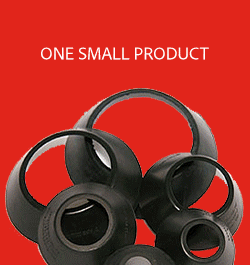











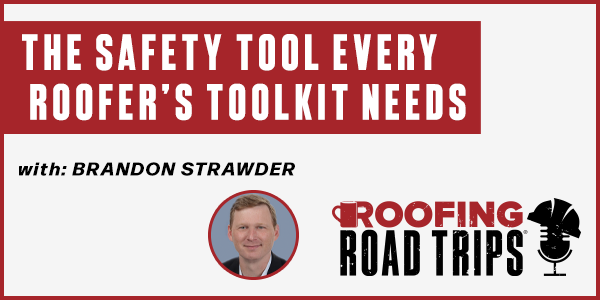
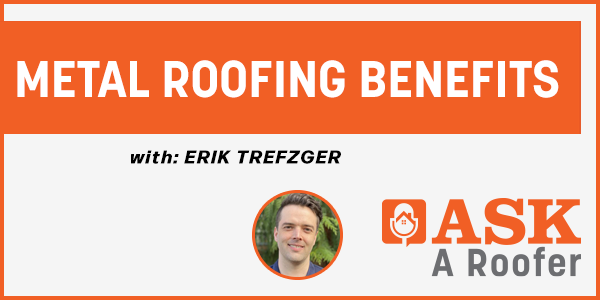
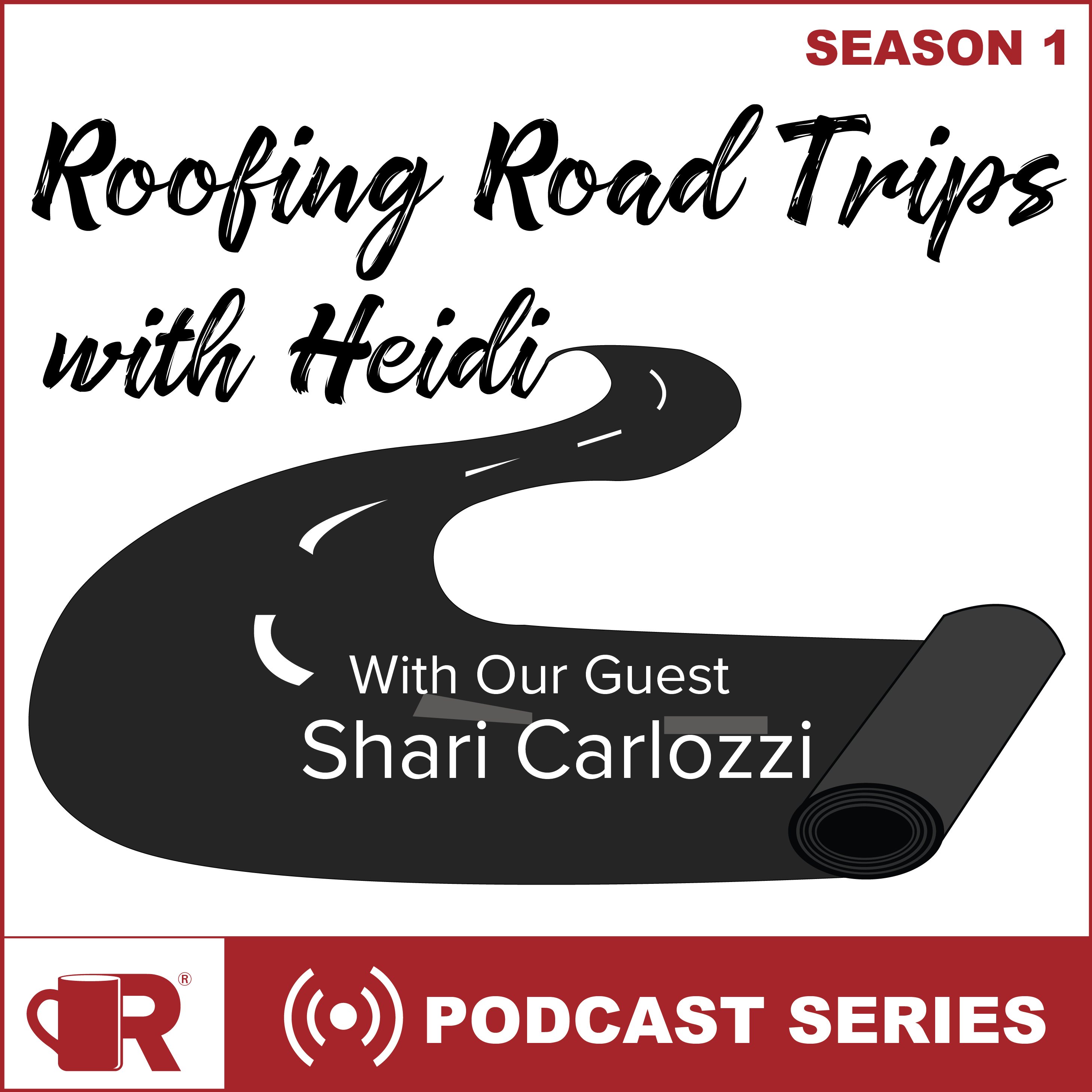



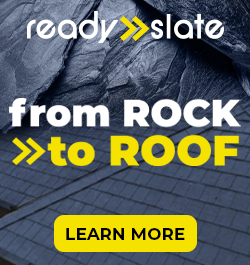

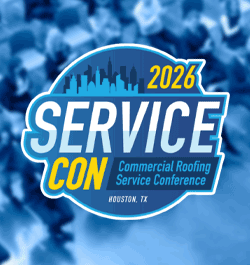
Comments
Leave a Reply
Have an account? Login to leave a comment!
Sign In